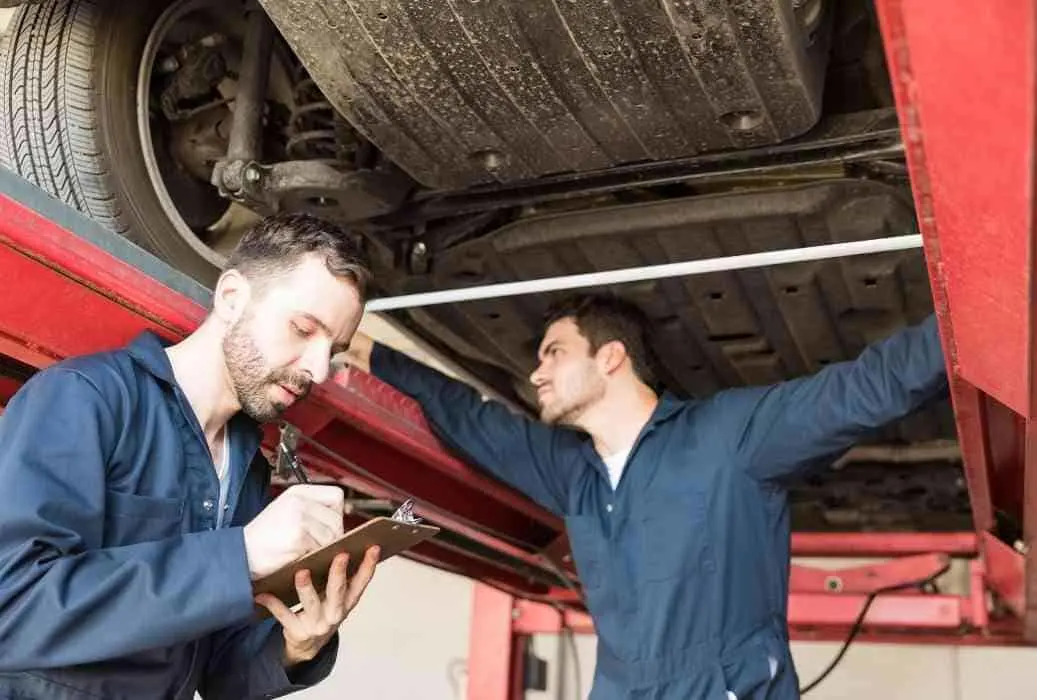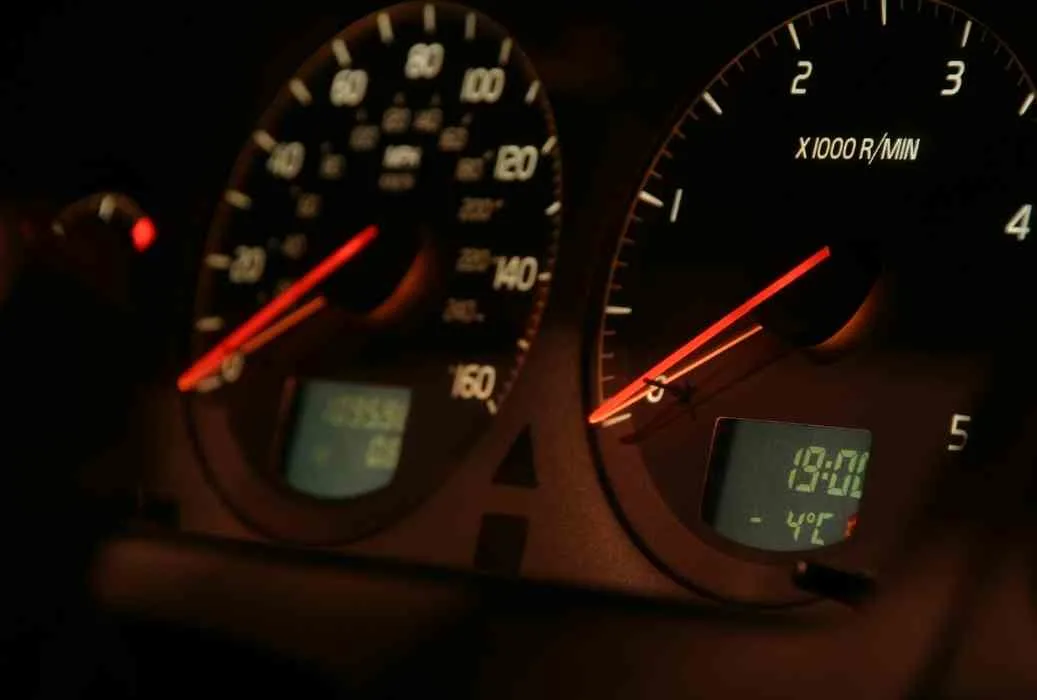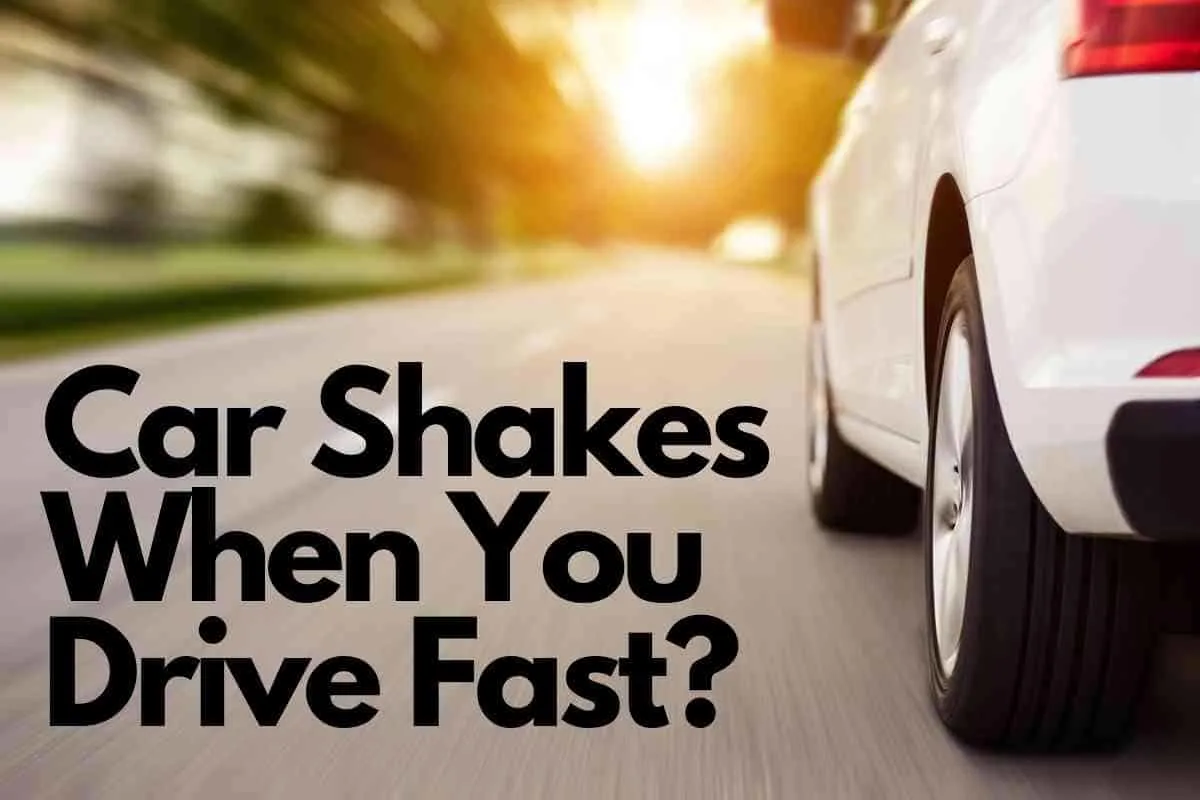You generally know when your vehicle is in good working condition or not. If it drives smoothly, you can generally consider things to be well.
But if it’s shaking, either through the seat, steering wheel, or brake pedal, that’s not a good sign.
A quick search online shows that there are a seemingly limitless number of reasons your car may be shaking when you reach certain speeds.
How are you supposed to know why YOUR car is shaking?
Cars begin shaking at high speeds most commonly because of some type of damage to the wheels or some other type of misalignment causing the vehicle to become off balance. The issue could also involve your axle, power steering, and brakes. Shaking is serious and needs to be addressed immediately.
The reasons why your vehicle might be doing this are numerous, and none of them are normal, so you should get your vehicle serviced right away.
Here are 14 reasons why your car might be shaking while driving fast.
1. Wheel Damage
One of the most common reasons your car shakes while driving fast is due to wheel damage.
Wheel damage can happen when you drive over a pothole or encounter other road hazards. Driving over these things at high speeds can bend or misalign your wheels.
Damage to your rims can also cause shaking.
It’s important to get your wheels checked out right away if you suspect damage has occurred. That’s because driving on wheels that don’t work properly for too long may cause even more damage.
2. Tires Out of Balance
When your tires are not correctly balanced, this can cause the vehicle to shake while driving fast.
Car-shaking at a speed of 55 mph or higher is most likely caused by tire imbalance.
You will feel this kind of shaking more in the steering wheel than anything else.
When you want to check for tire imbalance, look for any flat, worn spots on your tires. Fixing the car shake can be as simple as getting your tires balanced.
However, there is a point where there is too much damage, and you will have to have your tires replaced.
3. Uneven Tire Wear
What came first, the uneven tire wear or the out-of-balance tires? Both problems can cause the other to occur, and they both can make your vehicle more of a shaky ride.
Uneven tire wear isn’t just caused by imbalanced tires, though.
You can get uneven tire wear from bad alignment, a worn-out suspension, and over or underinflation.

4. Wheel Alignment Off
When your car shakes at fast and slow speeds, your wheel alignment is likely off.
It’s good to get your wheel alignment checked every year, and twice a year if you often drive on rough roads.
If your tires have uneven wear, your wheel alignment is likely off, too.
5. Worn Out Tires
Bald tires will make driving in any rain or snow very dangerous.
It’s difficult to stop or round corners with bald tires, too, and it can cause your car to skid and shake when you drive as well.
When this happens, get new tires as soon as you can.
6. Loose Lug Nuts
Even loose lug nuts can cause shaking at high speeds. This is because lug nuts keep the wheels screwed tightly onto the vehicle.
When the wheels are loose, your vehicle will shake.
You will feel this in the wheel and throughout the whole car.
This is an easy enough fix: just get your lug nut wrench out and tighten them up.
If they have been loose for a long time, it would be a good idea to get your vehicle into a shop just to make sure no further damage has occurred.
7. Suspension Issues
When trying to diagnose a car that shakes while driving, check the suspension
before you go out and buy all new tires.
That’s because this problem will still be around even if you replace the tires.
Suspension should be checked after the tires and steering system are checked.
Suspension problems that can cause car shaking while driving include suspension misalignment, loose suspension bearings, or other components.
This can happen at any time but tends to noticeably happen more after hitting a large bump in the road.
8. Steering System Issues
Problems with your vehicle’s steering system can also cause shaking while driving fast.
Your vehicle’s steering system is made up of tie rod ends and ball joints.
When either of these components is loose or worn down, your vehicle will shake while driving until you replace them.
Car shaking while driving straight usually indicates that the ball joints need to be replaced, but shaking while turning means the tie rods need replacement.
9. Power Steering Problems
One other way the steering system can affect your vehicle’s shakiness is when there are issues with the power steering.
This might be an issue when the car shakes while turning, but not while driving straight.
To address this, check the power steering reservoir for leaks or to make sure it’s adequately filled with the proper fluid.
10. Axle Issues
When all other vehicle checks turn out okay, but there is still vehicle shaking, it’s time to go over the vehicle’s axle.
Potholes can not only damage your wheels but can also bend your axle, too.
This could be a culprit if you find your vehicle shakes more the faster you drive.
Other axle components to check are the driveshaft and the CV joints.
The driveshaft, when bent, causes excessive shaking, and CV joints that are torn allow too much debris to get in and cause damage to the joints.
These parts need to be replaced to solve the shaking.

11. Engine Part Problems
The engine is one of the last things to check in diagnosing a shaking vehicle.
Problems with spark plugs, disconnected or loose hoses, or a broken engine mount can all cause shaking in your vehicle while driving.
It’s important to check all these aspects of the engine if nothing else is solving the shaking vehicle mystery.
Be sure to also check the air and fuel filters leading to the engine, too.
The timing belt going out may also cause your engine to shake, therefore be sure to check that the timing belt is in working order, too.
A timing belt that goes too long without replacement can ruin your engine, which means you would have more to worry about than a shaking car.
12. Broken Radiator Fan
Radiator fans, situated between the engine and the radiator, can go haywire and cause shaking in your vehicle.
This happens when the radiator breaks and is off-balance, causing vibration while in motion.
13. Brake Rotor Issue
One last place to look for unwanted vehicle vibration is in the vehicle’s braking system.
Braking issues that cause shaking will be felt in the steering wheel and sometimes the brake pedal as well.
Brake rotors can get “out of round” over time, which means you will have shaking when you apply the brakes while driving at a moderate speed.
This can also happen when your brake rotors get too worn down or when the thickness of the rotors is not right.
14. Brake Caliper Sticking
Another part of the brake system to check with vehicle vibration at high speeds is the brake caliper.
When the brake caliper sticks, you will feel vibrations starting at around 45 to 50 mph, and you may even start to notice a burning smell if you use your brakes too much in this state.
When you get your brakes serviced, make sure that you include a brake caliper check during this process.
This is especially important for vehicles with over 75,000 miles on them.
And, as usual, get your brake pads inspected as well and replaced if necessary.
Car Shakes At High Speeds
As you can see, there are numerous reasons why your vehicle might start shaking when you drive fast.
Your vehicle can even vibrate when you are driving at lower speeds or when you are making turns or breaking.
No matter what situation your vehicle is shaking in, you should have your car or truck serviced as soon as you notice it.
Nothing about a shaking car is normal. Take it in quickly before any further damage has happened to your vehicle.
Prevention is much better in all these situations, too.
As long as you regularly take your vehicle in for servicing and checks (usually annually is best), all of these problems can be nipped in the bud before they make themselves visible with vehicle vibrations.
